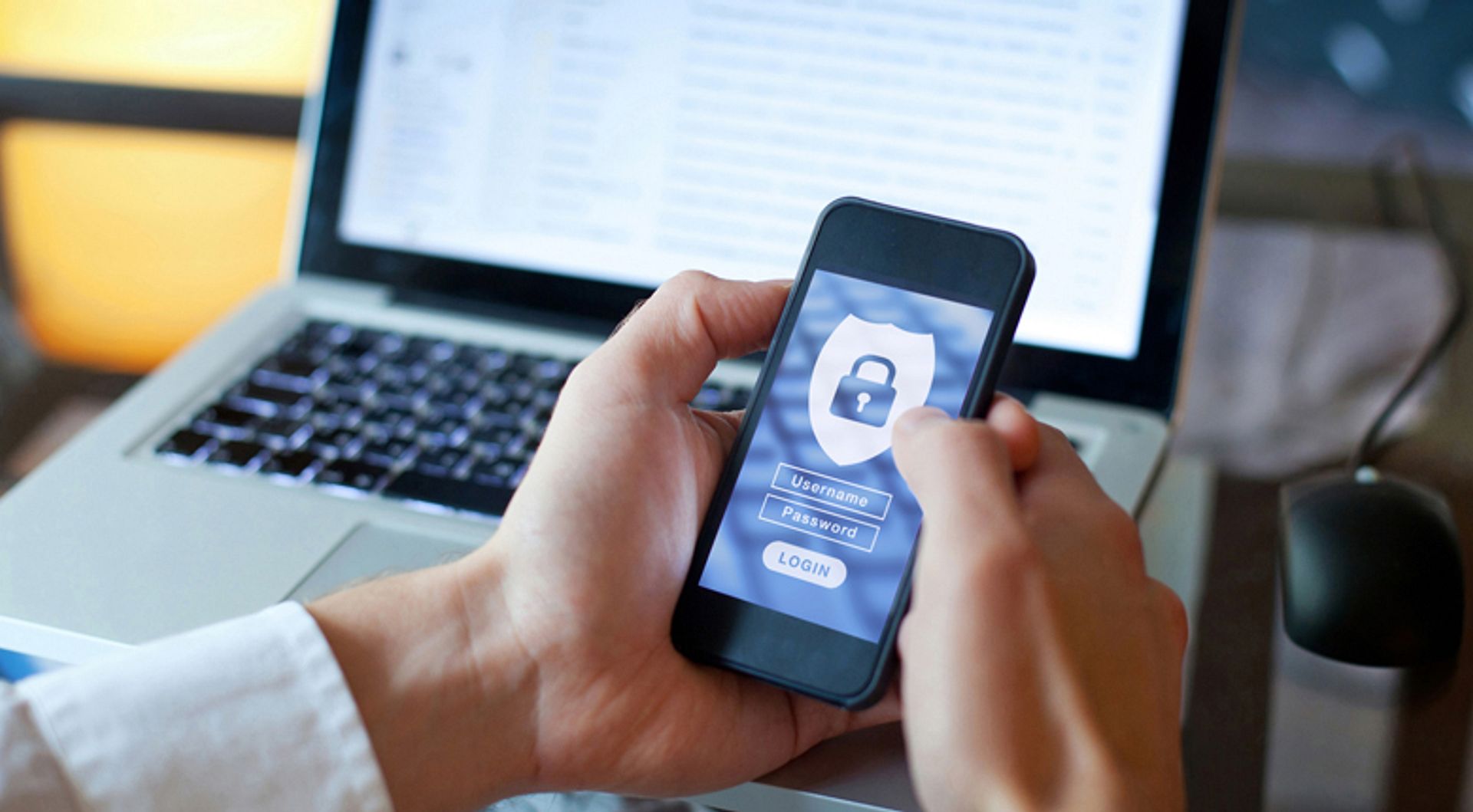Whether you’re at home or on the go, you have devices to help you stay connected with your friends, family, and colleagues wherever you go.
Unfortunately, as technology advances at an incredible pace, cybercriminals are finding new ways to take advantage of unsuspecting individuals and businesses through the Internet and mobile devices.
Whether it’s your phone, tablet, or computer, the good news is that you can take several simple actions to keep your devices secure from cyber criminals. Here are 10 ways to protect you from the scammers and hackers out there who want nothing more than to steal your money and confidential information.
1) Protect your device with a password
It is important to safeguard your device with a code because a strong password can help protect your data from cybercriminals.
It is recommended that passwords be at least eight characters long with a mixture of upper and lowercase letters, numbers, and symbols (such as !@#$%^&*) so it is difficult for someone to guess what the password may be.
If you are looking for an easy way to remember your passcode, think of an unrelated phrase and use only one word from the phrase to create a secure yet memorable code.
2) Update all software regularly
One of the easiest ways to protect your device is by keeping it updated with the latest software releases.
You can ensure you’re up-to-date by checking for updates in the settings or by visiting the Apple or Android store and clicking on Updates. If there’s an available update, tap Update All to download and install all available fucntions. Otherwise, select individual apps to update them one at a time.
The process may take some time, so be patient. Once everything has been downloaded and installed, your device will restart.
3) Back up your data
There are many options to back up your data and ensure you are prepared for anything that might happen to your device.
Backing up your data can help protect you from cyber criminals as it can act as a failsafe in the event of theft, fire, or other unfortunate events. In addition, backing up your data can also help to save you time by restoring information if something were to go wrong with one of your devices.
Consider storing your backups in a cloud-based storage service like Google Drive so that you can access them even when you’re away from home.
4) Turn on a VPN (Virtual Private Network)
While connected to a VPN, you can send and receive information more securely. No one can see what information you are sending, including cyber criminals.
A VPN also helps protect your devices by hiding your IP addresses so you cannot be found or identified.
5) Don’t click on phishing links
Don’t click on phishing links! Phishing is when a cybercriminal sends an email that looks like it came from someone you know, but in reality, it’s not.
The email may ask you to click on a link and enter sensitive information such as credit card numbers or social security numbers, which the cybercriminals will then use fraudulently.
Keep your personal information secure by avoiding phishing emails or clicking on any suspicious links in these messages. Never provide personal details through email or phone unless you can verify who is asking for it.
To protect yourself, don’t open attachments sent with emails from people you don’t recognize or click on links inside those messages.
6) Use anti-virus software
One of the best ways to protect yourself is by using antivirus software and updating it regularly. This will help stop the spread of viruses before they have time to make their way onto your device.
It also stops spyware, which can steal personal information or even turn over control of your computer or mobile phone until you pay a ransom for its return.
7) Use two-factor authentication
Two-factor authentication is an extra layer of protection that requires a password and something else (typically a code sent to your phone) for access. This makes it much harder for cybercriminals to access the accounts since they would need both the password and the special code.
8) Be aware of scams and fraud
Scams and fraud happen daily, so you need to be on the lookout for suspicious activity. Here are some of the most common types of scams that you should be aware of:
Identity theft:
Identity theft is when someone steals your identity by pretending to be you or obtaining information about you to commit crimes in your name. The best way to protect yourself is by getting a credit freeze to prevent anyone else from opening an account in your name without a court order.
Someone could try to become your friend to steal your identity, so be careful of those you get close to, and be sure to verify their identities on Nuwber first.
Financial fraud:
Financial fraud can come in many forms but typically involves tricking someone into wiring money or giving out personal information such as passwords and social security numbers.
One popular type of financial fraud is phishing, where scammers send emails with links to fake websites designed to steal bank information.
Fraudulent websites:
Many sites are trying to steal your money or identity by making it seem like they offer something beneficial at no cost. Some even use trusted brands to make their site look legitimate.
However, if it looks too good to be true, then it probably is. If a website asks for your personal information or money upfront, proceed cautiously! It may not be what they say they are and could lead you straight into the hands of cybercriminals.
9) Keep phones locked when not in use
When you are not using your phone, lock it with a password or biometric identification. Additionally, do not save any important information on the device so that if it is lost or stolen, there is nothing valuable for a cybercriminal to steal.
10) Use a firewall
A firewall is a powerful tool that can help protect your device from cybercriminals. Firewalls block unauthorized access and data leaks and help protect against malware and viruses.
They also monitor and control the traffic coming into and out of a device, ensuring that you only access websites you know are trustworthy.
It would be best if you always had some software firewall running on your devices to help prevent vulnerabilities. Firewalls are free and easy to use for most people, but if you want one with more features, it may be worth investing in an enterprise-level version.
Final Thoughts
You and your family need to be knowledgeable about the dangers of cybercrime and how it can impact every device in our homes and personal lives. The earlier you are aware of these risks, the better equipped you will be to protect yourself against them.





